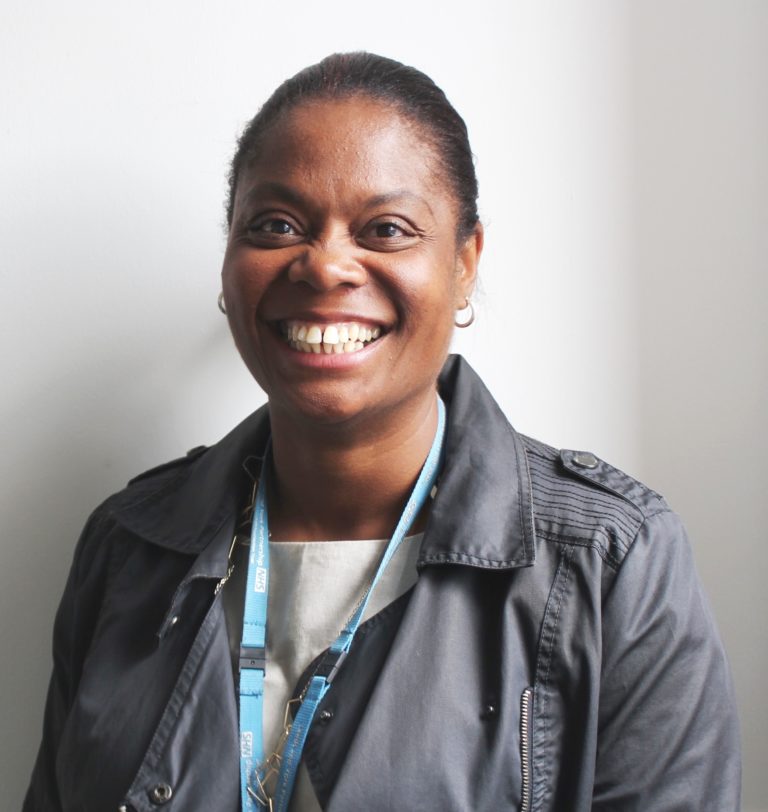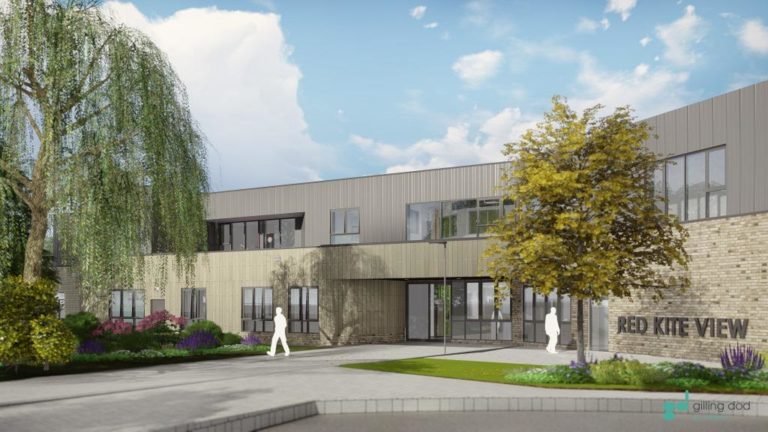Embracing uncomfortable truths to bring healing and change
Courage, tenacity and vision lie at the heart of ground-breaking work at Leeds and York Partnership Foundation NHS Trust to address an uncomfortable and complex issue.
When Leeds published its Mental Health Needs Assessment in 2017, it revealed a stark racial imbalance among people admitted to mental health wards.
Not only were people from black, Asian and mixed ethnic backgrounds over-represented in those admissions, they were under-represented in care which could have helped them avoid serious illness and hospital admission. They were also less likely to complete their therapy and therefore less likely to recover.
While the problem isn’t at all exclusive to Leeds, it became clear that to achieve positive change, things must be done differently.
The work that has since emerged includes a partnership between the Trust, public health, Leeds City Council, NHS Leeds Clinical Commissioning Group and the voluntary sector.
It makes Leeds one of only four major cities to pioneer a novel, ‘whole systems’ approach.
It considers a person’s life circumstances and experiences, and their pathway into care.
“This is about a whole range of factors, from housing, education and social inclusion to community care and support,” says Trust Consultant Clinical and Forensic Psychologist, Sharon Prince, who is jointly leading the work.
“It’s also about embracing the very complex, underlying challenge of racial inequalities, which means being prepared to have uncomfortable conversations.”
The Leeds partnership has teamed up with the Synergie Collaborative Centre in London and become ‘Synergie Leeds’, signing up to their pledge: ‘To reduce ethnic inequalities in mental health systems’.
“We want the voices of people who use our services to be at the centre of what we do and how we work,” says Sharon. “It’s easy to say that but difficult to do.
“We want to change how we frame our conversations. For example, we’re asking people what they have been through, what they need from us and what we could do better to help them.”
Sharon describes this work as more of a movement, a public health issue and one of social justice.
“We are dealing with fundamental issues such as people’s trust in organisations and their lack of readiness or confidence to tell their difficult stories. But we are hoping that, through creativity such as photo-journals, podcasts and art, we will be more able to connect with people.
“It’s up to us to really listen, to tolerate challenge and to be willing to change as individuals, as a service and as a whole system.”
Helping young people live their best lives
“In the last five years, children and young people’s mental health needs have come into sharp focus, bringing a welcome recent increase in investment,” says Joanna Forster Adams Chief Operating Officer of Leeds and York Partnership NHS Foundation Trust.
This has allowed the service to build on its close collaboration with partners across West Yorkshire and the Region including clinicians, leaders, managers, young people and many others. They work together to make sure people get support in a way that most benefits them and prevents crisis and deterioration in their mental health.
“Every day I am impressed by the expertise and passion of the clinical and support teams who make such a difference to the lives of these young people,” says Joanna.
“While most will be supported as outpatients and in our communities, some need more intensive support as an inpatient, where they will experience a safe and welcoming environment.”
Although Leeds has inpatient beds at Little Woodhouse Hall, some young people across West Yorkshire have had to travel long distances to be cared for in hospital.
The new investment is addressing this situation as a priority, to support people as close to home as possible.
Red Kite View, Leeds’ new state-of-the-art children and young people’s inpatient unit, is in its final stages of development, which has involved young people. Based at St Mary’s Hospital in Armley, an extensive specialist team will provide care at the unit for 22 young people and will be a major boost to the area.
But why does so many young people’s mental health suffer?
“There are many reasons why – from dysfunctional social circumstances, experience of trauma, pressures at school, family issues and increasingly the negative impact of social media,” said Tim Richardson, Head of Operations (Children and Young People) Leeds and York Partnership NHS Foundation Trust.
“In the past, you may have been picked on by a few classmates, now social media extends that suffering way beyond school. This can have a profound impact on a young person’s sense of self-esteem.”
Social media, together with the Covid pandemic, played a role in the alarming increase in eating disorders in young people.
“Our aim is to help young people help themselves to think and act in ways that lead to better outcomes for themselves and those around them. Learning to make better choices that will have a positive impact on the direction their life takes,” explained Tim.
The work of deaf CAMHS has also made significant strides in understanding the relationship between communication and good mental health.
Tim expands: “For deaf people it is not about not being able to hear, but about not being able to communicate. This is not inherent in the deaf child but because as a society, we do not accommodate the needs of deaf people well enough, for example, in knowledge and use of sign language.
“This can result in behavioural problems and mental health problems. Our specialists help young people deal with this, and we are developing specific deaf staff roles to expand the support.”
Joanna is confident the service will go from strength to strength,
“At last, young people with mental health issues are being moved to the front of the healthcare queue and we can provide an unrivalled safety net for them, and their families.“
Looking after the delicate balance of who we are
There is “No health without mental health.”
Aptly used to name a cross-government strategy to improve people’s mental health, this statement acknowledges the complexity of who we are and how we tick.
It rightly acknowledges the delicate balance and interdependency between our physical and mental health.
It’s within this delicate balance we find the vital work of liaison psychiatry.
Whether at the hospital bedside, in the outpatients’ or emergency department, intensive care or a hospice, a liaison psychiatrist offers help to physically ill people who need mental health support. Their work spans a huge range of scenarios, as liaison psychiatrist Max Henderson explains.
“We may be helping people with complex, long term health conditions who have become depressed, anxious or are self-harming. Or people who have physical symptoms that the medical services can’t fully explain,” he said.
“As we provide help for people’s mental health, it then eases the way for a person to receive care from our medical colleagues. The two go hand-in-hand.”
Liaison psychiatrist George Crowther specialises in care for people over 65.
“Although our liaison psychiatry service covers the whole life span, we see different challenges emerging for older people. Those may be related to dementia, Parkinson’s disease or delirium, for example,” he said.
“That can make it hard for them to engage with the physical treatment they need, so we help them through this.”
Leeds is renowned for its strong track record in liaison psychiatry, both in the breadth and strength of its clinical practice and in its academic research.
Underpinning this are excellent relationships between medical, psychiatric and academic colleagues in Leeds, providing the ideal setting for such collaborations.
The academic research portfolio Max and George are involved in is broad and diverse.
For example, one study is looking at the benefits of using a hand-held electrocardiogram (EGC) for people with heart problems, instead of using the traditional heart monitoring machine. If people are very distressed at the thought of having to partly undress to attach sensors to their skin, the hand-held option could solve this.
In another study, Max and George are working with neurology colleagues to understand the effects of hospital stays on people who have Parkinson’s disease, and how to ensure the best outcomes for them.
And their research list goes on. It looks into repeated self-harm, end-of-life care and dementia – where they are using virtual rather than real settings to study models of care, thereby avoiding causing distress and service disruption.
In other research, they are informing national policy by studying the impact of unemployment on mental health, the NHS and the economy.
“Liaison psychiatry is still an emerging speciality but is strides ahead in Leeds,” says Max.
“Our academic department is growing and we are very much open for business. Being part of Leeds Academic Health Partnership positions us really well to explore a wealth of new opportunities and to expand.
“By working together, we can help ensure mental health is part of every agenda, from business and education to local authority and healthcare.”
George Crowther is a clinical academic consultant in Liaison Psychiatry for Older People at the Leeds and York Partnership NHS Foundation Trust and a visiting Senior Lecturer at the University of Leeds.
Max Henderson is consultant liaison psychiatrist and Senior Clinical Lead for Research and Development at Leeds and York Partnership NHS Foundation Trust, and Associate Professor in the Leeds Institute of Health Sciences (LIHS) University of Leeds.


